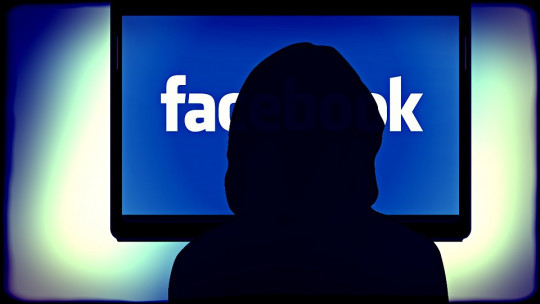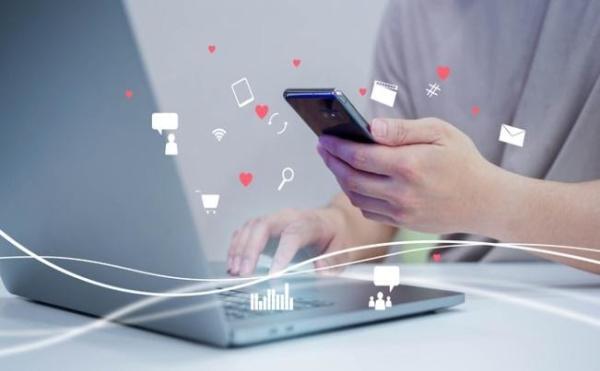
The Internet has revolutionized society and social networks have become an essential infrastructure of daily life. In just one year, 227 million new users have been registered and, today, 59% of the world’s population has an online presence.
Currently, We are 2.5 times more likely to turn to social networks to stay up to date with world news, instead of turning to printed newspapers or magazines. We also do not limit the use of social networks to find out the news, since we use them for all kinds of issues, such as communicating with our family and friends, expressing our opinions, seeking inspiration for decorating our home, watching a concert, applying to job applications, have digital meetings, get an appointment or share photos and videos with our followers.
Although two decades have not yet passed since the appearance of Web 2.0, until today, The evolution and revolution of social networks has been unstoppable, which has made them an indispensable aspect of our daily lives. But the question they ask us is: why do we find them so attractive?
The Psychology of Social Media: What’s the Appeal?
Although the use (or abuse) and time invested in social networks has been a very recurring topic in recent years, the social impact it has had is undeniable. And it is precisely has revolutionized our lifestyle the way we establish connections with other people and even the vocabulary we use.
Thanks to social networks, geographical barriers to communication have been eliminated, so we can have a limitless connection with countless people with whom we could not interact due to the mere fact of living in different countries, so the reach is endless. The immediacy of information It is another point in its favor, since it facilitates the dissemination of information, and as it is an interactive medium, it allows the dissemination to not be limited to being a simple statement, but rather converts it from a “monologue” to a “dialogue” to debate. ideas and refute arguments on the spot.
If we want to understand the appeal to the human mind, we must first explain the brain’s reward system. The brain’s reward system is responsible for mediating the sensation of pleasure in the body, with the purpose of reinforce a behavior so that it reappears It is the basis of behavioral psychology, which uses positive reinforcement to “reward” a behavior, increasing the probability that it will be repeated.
When we get that positive reinforcement, our brain releases neurotransmitters (chemical messengers that drive signals between neurons and target cells), such as dopamine and oxytocin, which cause a feeling of well-being and pleasure in the body. Many activities can activate these reward mechanisms in our brains. One of them is the use of social networks. Neuroscientist Paul J. Zak (2015) considers oxytocin as the “social glue” capable of uniting families, communities and societies, because it is the most important human stimulant for developing empathy, generosity and trust.
How is oxytocin related to social media use? According to studies led by Zak, Just 10 minutes using social networks can increase our oxytocin levels by up to 13% This is because the interactions we have online, the views of content that inspires us, or even the positive reactions we receive from something we have shared, can activate the release of happiness neurotransmitters and produce a feeling of well-being in we who want to repeat.
The appeal of social media may also be due to “social connectivity” that evokes and is associated with a feeling of belonging and closeness, and the degree of satisfaction we have about our interpersonal relationships. Connectivity is a human need, but it can’t always be developed in person. This was the situation we were in during the COVID-19 pandemic. However, social networks served as an alternative and many users dedicated themselves to sharing hopeful messages and videos.
Here another psychological phenomenon comes into play called “emotional contagion”, which is the tendency to share the emotions that people around us feel. Various research has shown that this emotional exchange is especially powerful on social networks and can serve as social therapy to regulate emotions and reduce psychological stress. This is why the massive applause to recognize the work of health personnel, an initiative that emerged and spread through social networks, served as consolation and alleviated the mental burden of many people.
The dilemma between the real world and the online world
The distinction between the real world and the online world used to be very simple. But today, online interactions are not only not separate from our real lives, but are an integral part of it. On certain occasions, online interactions may even be preferable to real ones.
An advantage of online communication is that participants They can interact despite the existing geographical distance There may also be a preference for asynchronous communication, that is, deferred in time, which allows you to communicate when it is most opportune for you. The expert professor in the study of social networks, Ferran Lalueza, indicates that this preference is common in the millennial generation and subsequent generations, since it allows them to write, edit and review the message as many times as they want before sending it, which that they cannot do in a real-time conversation.
Some individuals may prefer online interactions over those in the physical world as a self-protection measure For example, many people may feel intimidated or unsafe about having certain interactions in person when they do not know the other person well or because the activity itself, such as conducting a therapy session, causes anxiety. As established by psychologist Paz Holguín, the online modality allows the person to be more comfortable, being in a more controlled and familiar environment.
Finally, we can manage several online interactions with multiple people at once, which simply would not be possible or would be very tedious to manage if the information was directed to a large number of people in the physical world. This preference for efficiency It is another reason why many individuals prefer the online world over the physical world.
Social networks: a lifestyle
Social networks are not a passing phenomenon, but a socialization tool that we have internalized and adopted into our lifestyle. So much so that they are not two individual worlds, but one, an extension of ourselves. However, there is still a long way to go before these spaces are not harmful to our health and using them irresponsibly puts our integrity at risk. The entrepreneur Isaac Marcet defined it best when he said that social networks are “a highway that is now wider than before, but for which seat belts and certain regulations still need to be imposed.”
In conclusion, social networks began as a means of communication and, currently, have the capacity to be a space for digital activism, a source of social connectivity and a digital meeting point regardless of social, economic and cultural origin Transforming this space and making responsible use of social networks is in our power.








